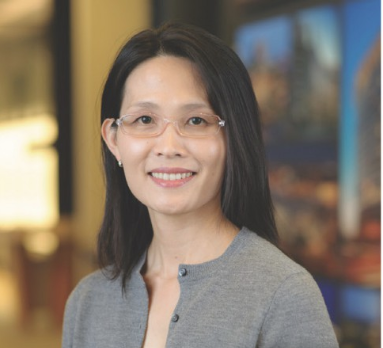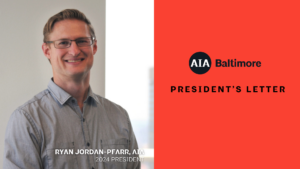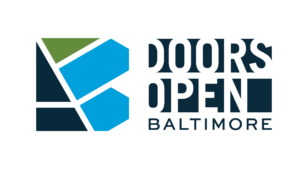As part of the Committee on Architecture for Education’s (CAE) 2020 focus on climate change and its effects on the educational built environment, CAE engaged the expertise of local design professionals with a specialty in sustainability to explore the most urgent climate change concerns and resolutions that our industry must consider moving forward.
This interview series includes discussions with Directors of Sustainability from Baltimore architecture firms, specifically seeking what is working, what is not working, and what are the next steps forward to optimize sustainable design. The series tackles how to better tailor the tools available to us for each project, successful (and unsuccessful) processes, accountability for performance-based design, and how to successfully communicate with project owners to achieve a truly sustainable result.
Our first interview is with Seonhee Kim, AIA, LEED AP BD+C at Design Collective. A recipient of the coveted Dean’s Thesis Award, Seonhee graduated from the University of Maryland’s School of Architecture in 2004 with a Master’s degree in Architecture. In her 13 years of experience, her work includes a wide variety of projects ranging from higher education and student housing to mixed-use and commercial office buildings. As Director of Sustainability, Seonhee is an expert on high-performance design and an advocate for the environmental and health effects of building design.
What isn’t working?
LEED Certification does not work well; it encompasses everything for all types of buildings. Rural buildings will have a hard time getting certain credits, whereas urban highrises will be unable to get other credits. Being able to choose between different accreditation programs may be helpful for allowing more projects to be built to higher standards. Prescriptive vs. performance requirements. We need to move into performance—how the building actually performs—because then there is accountability and the requirement to work with the building inhabitants to operate the building sustainably.
What is working?
Certifications of buildings have pushed the industry forward, but now may be holding it back. They are a way to hold projects accountable, but we need the next step of performance review. Energy usage as a focus continues to be very important.
What do you need?
Education on how to implement sustainability at the beginning of a project, workshops on performance analysis during the concept design phase, how to make smart choices from the beginning.
What’s next?
Performance over prescriptive requirements!


